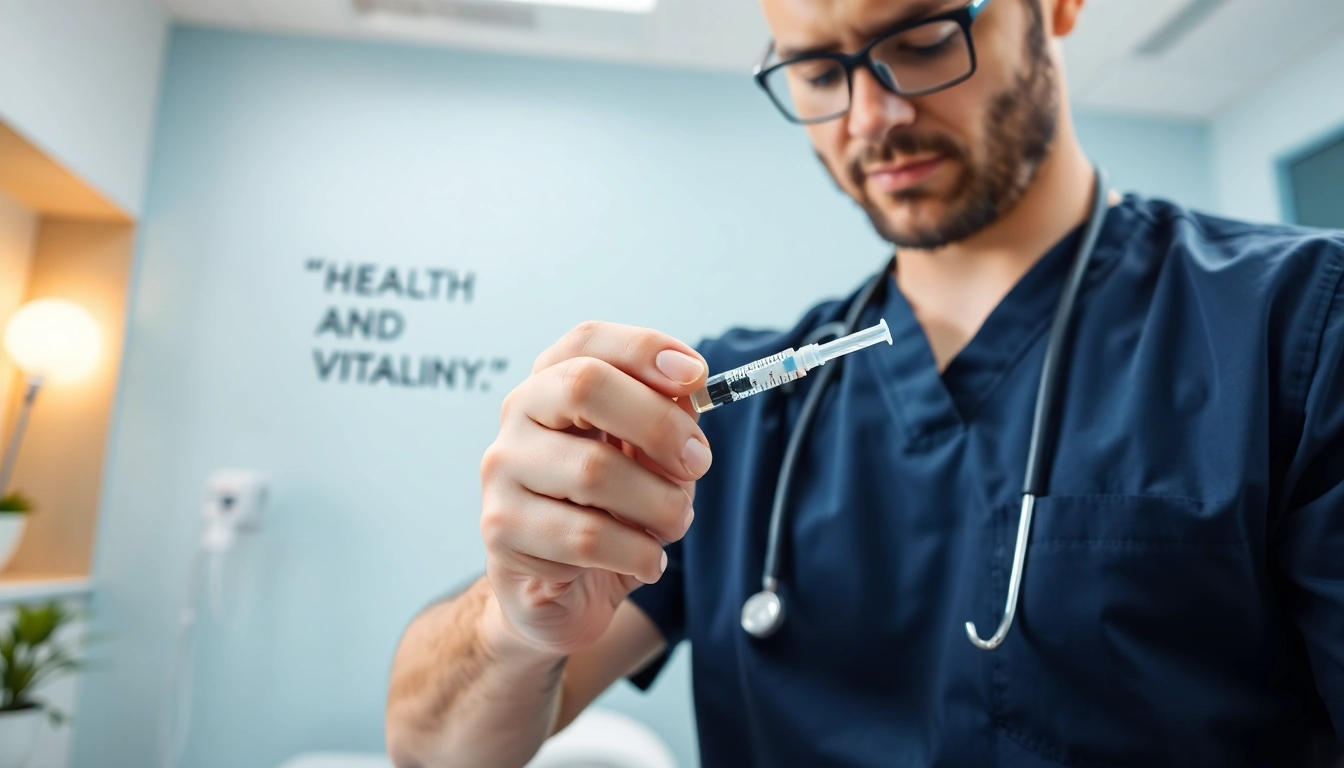The Importance of Testosterone Shots for Health
In recent years, Testosterone shots have gained significant attention as more individuals seek methods to optimize their health and well-being. Testosterone, a vital hormone in both men and women, plays a crucial role in numerous bodily functions. When levels of testosterone drop, it can lead to a range of health issues, prompting many to consider testosterone therapy as a viable option. This article will explore the significance of testosterone shots, the benefits they offer, potential risks, and essential considerations before beginning treatment.
What Are Testosterone Shots?
Testosterone shots, also known as testosterone injections, are a form of hormone replacement therapy designed to elevate testosterone levels in individuals diagnosed with low testosterone (also referred to as hypogonadism). These shots typically contain testosterone esters, which are injectable forms of the hormone that allow for sustained absorption and effects in the body. The injections are usually administered intramuscularly, most commonly in the thigh or buttocks, and may be self-administered or done in a clinical setting, depending on individual preferences and healthcare recommendations.
Why Consider Testosterone Therapy?
Men and women may consider testosterone therapy for various reasons, primarily due to the symptoms of low testosterone. In men, symptoms can include diminished libido, fatigue, depression, and decreased muscle mass, while women may experience similar issues along with changes in bone density and mood fluctuations. Additionally, testosterone therapy can aid in improving quality of life by enhancing energy levels, cognitive function, and overall well-being. Therefore, testosterone shots serve as an important option for those seeking to regain balance and vitality in their lives.
The Role of Hormones in Overall Well-being
Hormones are chemical messengers that coordinate key functions in the body, influencing everything from metabolism to mood. Testosterone, in particular, has a profound impact on sexual health, muscle development, mood regulation, and energy levels. A healthy hormonal balance is essential for optimal physical performance and mental health. When testosterone levels decline, it can disrupt this balance and lead to various physical and emotional symptoms. Therefore, understanding the importance of testosterone and how testosterone shots can help restore balance is crucial for individuals facing these challenges.
Exploring the Benefits of Testosterone Shots
Improved Energy Levels and Vitality
One of the most frequently reported benefits of testosterone therapy is a marked increase in energy levels and overall vitality. Individuals suffering from low testosterone often experience fatigue and a lack of motivation. When testosterone levels are restored through shots, many find themselves feeling more energized and engaged in their daily activities. This renewed vitality can lead to improved productivity at work, enhanced performance in recreational activities, and a more satisfactory social life.
Enhanced Mood and Cognitive Function
Low testosterone can significantly affect mental health, contributing to symptoms of depression, anxiety, and cognitive decline. Testosterone therapy has been associated with improved mood, emotional stability, and cognitive function. Studies suggest that restoring testosterone levels can enhance memory, concentration, and overall brain health, allowing individuals to perform at their best both mentally and emotionally.
Impact on Muscle Mass and Strength
Testosterone is essential for maintaining muscle mass and strength. It plays a crucial role in muscle protein synthesis, which is the building block of muscle development. Men and women undergoing testosterone therapy often report noticeable increases in muscle strength and lean body mass. This enhancement can be particularly beneficial for those looking to improve physical performance, whether it be for competitive sports or personal fitness goals. Additionally, increased muscle mass can support metabolic health, contributing to better weight management.
Understanding the Risks and Side Effects
Possible Health Risks of Testosterone Shots
While testosterone shots offer several benefits, they are not without risks. Potential side effects may include acne, sleep apnea, mood swings, and an increased risk of cardiovascular issues. Some studies have suggested a link between testosterone therapy and an elevated risk of certain health conditions, such as prostate enlargement or prostate cancer in men. Therefore, it is vital to weigh the benefits against the risks when considering testosterone therapy.
Long-term Use Considerations
Long-term use of testosterone shots requires careful monitoring and evaluation by healthcare professionals. Regular blood tests are necessary to measure testosterone levels, assess liver function, and evaluate overall health. Continued use should only proceed if the benefits of therapy outweigh any potential risks. Adjustments to dosage and administration may be required to optimize treatment outcomes and minimize side effects.
Consulting with a Healthcare Provider
Before beginning testosterone therapy, individuals should engage in comprehensive discussions with their healthcare providers. This involves not only addressing symptoms related to low testosterone but also reviewing medical history and undergoing necessary diagnostic tests. A qualified healthcare provider can help determine whether testosterone shots are appropriate and establish a tailored treatment plan that aligns with individual health goals and conditions.
Getting Started with Testosterone Shots
Identifying Symptoms of Low Testosterone
Recognizing the symptoms of low testosterone is the first step toward potentially initiating treatment. Common signs include fatigue, decreased libido, difficulty concentrating, mood changes, and reduced muscle mass. Individuals experiencing these symptoms should document their experiences and consult with a healthcare professional to determine if further evaluation is warranted.
How to Choose a Treatment Provider
Selecting the right healthcare provider is crucial in ensuring safe and effective testosterone therapy. Look for a provider experienced in hormone treatments and who can offer thorough evaluations and personalized care. Recommendations from trusted sources or online reviews can be helpful in finding a qualified professional who understands the complexities of hormone therapy.
Initial Steps in the Treatment Process
Once you have selected a treatment provider, the initial steps typically include a comprehensive assessment, hormone level testing, and a discussion of potential treatment options. Your provider will establish a baseline testosterone level and may recommend lifestyle changes or additional therapies to optimize results. If testosterone shots are deemed appropriate, a treatment regimen will be tailored to your individual needs.
Monitoring and Adjusting Your Testosterone Therapy
Regular Follow-up Appointments
Regular follow-up appointments are a key aspect of successful testosterone therapy. These appointments allow healthcare providers to monitor treatment response, manage potential side effects, and make necessary adjustments. For optimal results, individuals should maintain consistent communication with their providers and report any changes in symptoms or health status.
Evaluating Treatment Effectiveness
Evaluating the effectiveness of testosterone shots involves assessing improvements in symptoms, energy levels, mood, and overall quality of life. Healthcare providers may also conduct follow-up blood tests to determine whether hormone levels have stabilized within the desired range. Feedback from the patient about their experience during therapy is invaluable in informing any necessary adjustments.
Making Informed Adjustments to Your Plan
Based on evaluations and ongoing discussions, healthcare providers may recommend adjustments to the treatment plan, including changes to the dosage or frequency of testosterone shots. Every individual responds differently to hormone therapy, so personalized adjustments are essential in optimizing results and minimizing risks.



